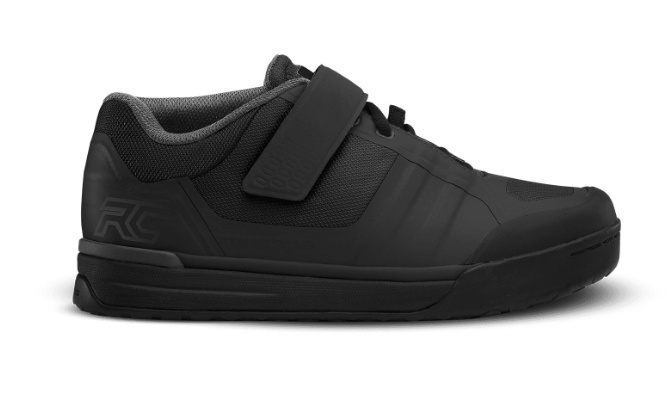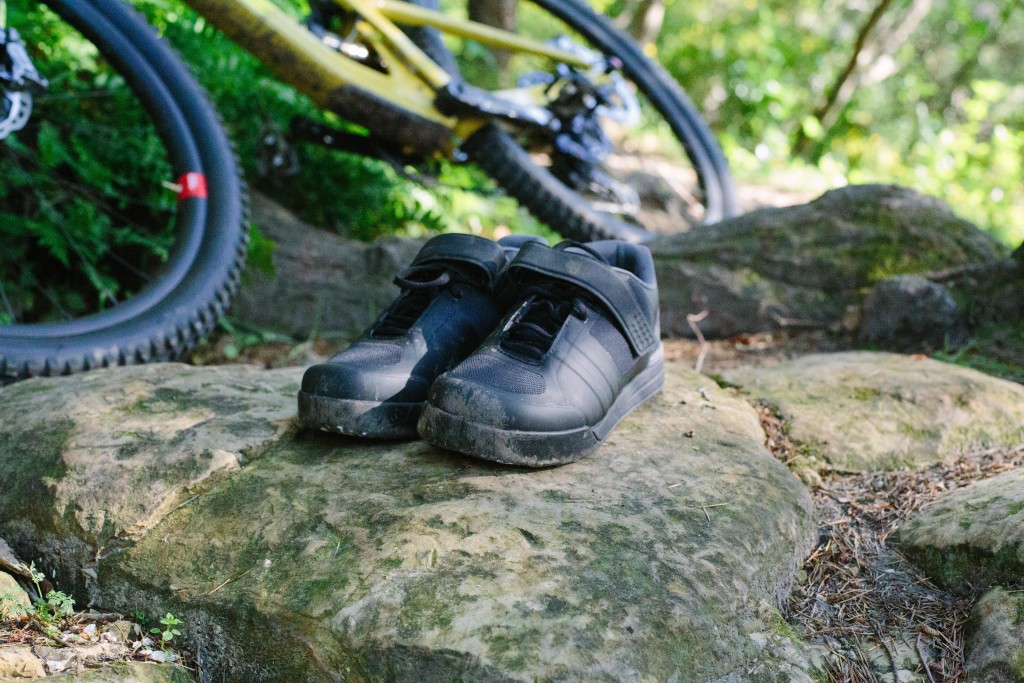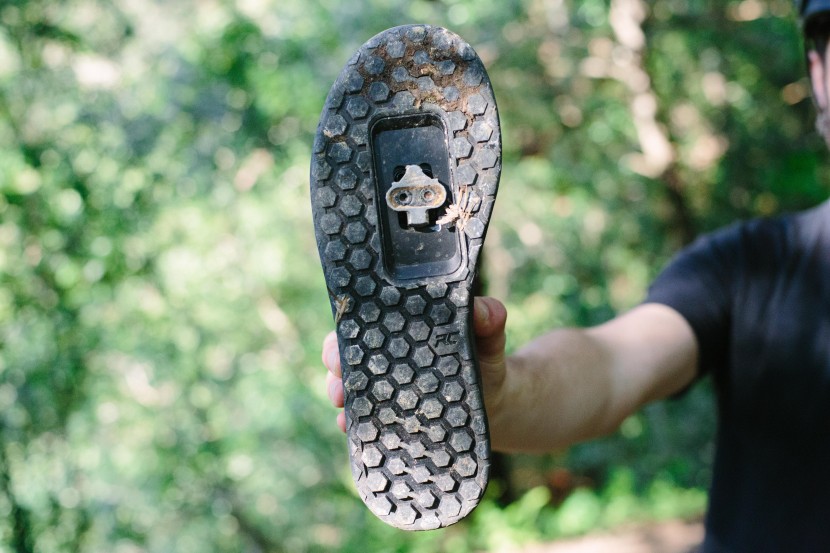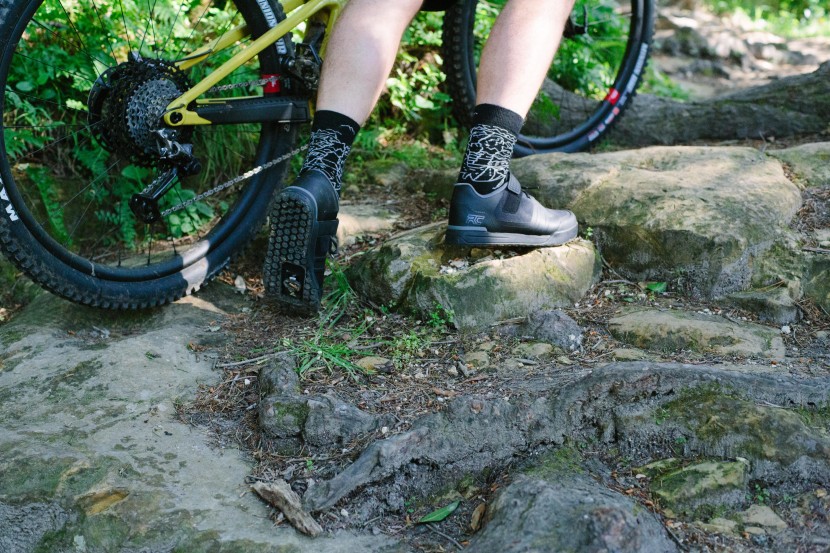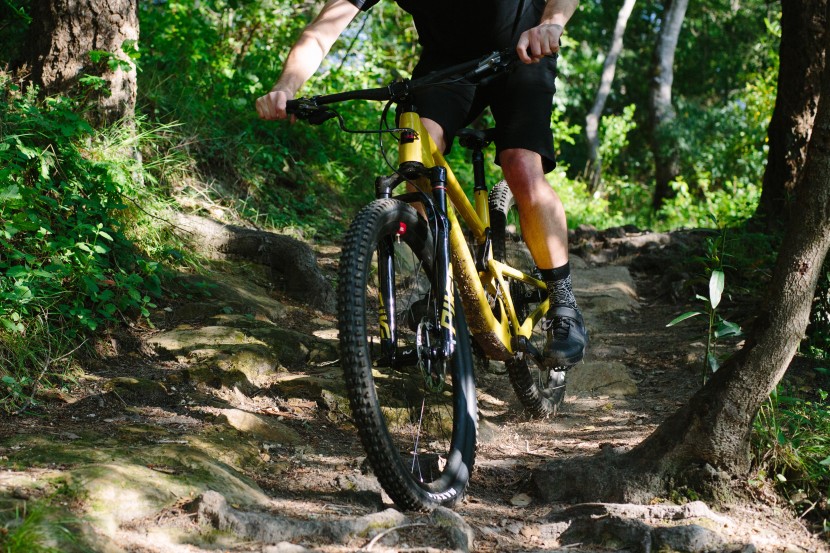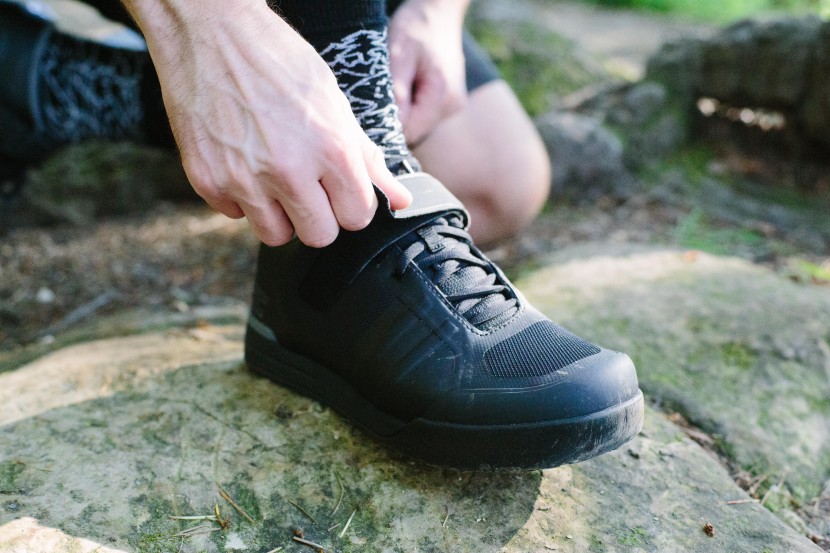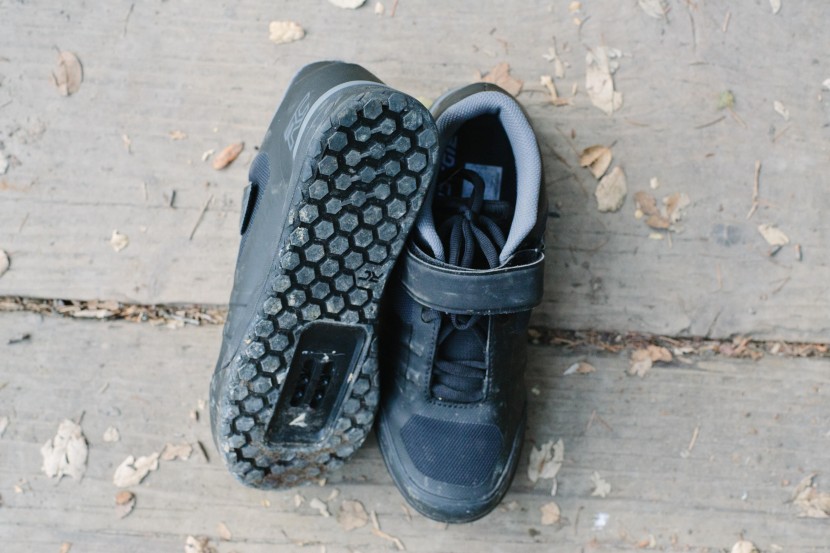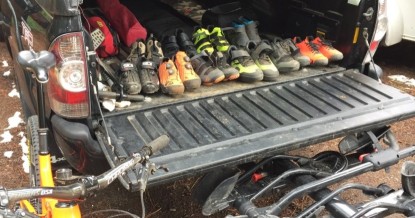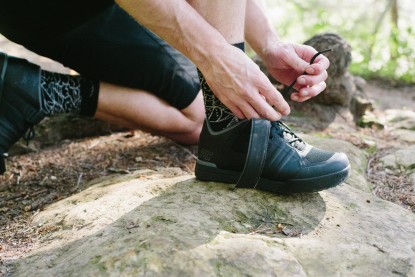Ride Concepts Men's Transition Review
Our Verdict
Compare to Similar Products
 This Product
Ride Concepts Men's Transition | |||||
|---|---|---|---|---|---|
| Awards | Best Overall Trail Riding Shoe | Best Bang for the Buck Cross Country Shoe | Best Bang for Your Buck All-Mountain/Trail Shoe | Best on a Tight Budget | |
| Price | $180 List $144.00 at Backcountry | $220 List | $170 List | $130 List Check Price at Backcountry | $89.95 at Backcountry Compare at 2 sellers |
Overall Score  |
|||||
| Star Rating | |||||
| Bottom Line | This durably constructed shoe will keep your feet safe and comfortable on the descents | A unique design and a great blend of on and off-the-bike performance make this a versatile trail and all-mountain shoe | An XC/trail riding shoe that combines high performance with affordability | Lightweight with good power transfer and walkability, these are a reasonably priced trail riding shoe with casual styling | These shoes offer a good blend of on and off-the-bike performance for casual trail riding or bikepacking |
| Rating Categories | Ride Concepts Men's... | Shimano ME7 | Scott MTB Team Boa | Specialized 2FO Roo... | Giro Gauge |
| Comfort (25%) | |||||
| Traction and Walkability (25%) | |||||
| Power Transfer (20%) | |||||
| Weight (15%) | |||||
| Durability (15%) | |||||
| Specifications | Ride Concepts Men's... | Shimano ME7 | Scott MTB Team Boa | Specialized 2FO Roo... | Giro Gauge |
| Measured Weight (per shoe) | 547 grams | 415 grams | 359 grams | 375 grams | 452 grams |
| Closure | Laces and Powerstrap | Speed lacing system with cover and ratchting upper bucckle | Boa iP-1 dial, plus Velcro strap | Laces | Laces |
| Outsole | Rubber Kinetics DST 8.0 Mid Grip Rubber | Michelin OCX3 dual-density | StickiRubber | SlipNot FG | Rubber outsole |
| Upper Material | Welded Microfiber Upper | Synthetic Leather | Synthetic Polyurethane, 3D Airmesh | Synthetic Leather and Textile | Synchwire on-piece composite |
| Footbed | D30 High Impact Insole | Shimano Pedaling Dynamics insole | ErgoLogic | Specialized Body Geometry | Die-cut EVA |
| Midsole | RC Powerdrive Nylon Shank | Carbon Fiber composite "TORBAL" midsole | Nylon/Glass Fiber Composite | Stiff Lollipop nylon composite plate | Injected nylon shank |
| Size Tested | 43.5 | 44 | 44 | 43.5 | 45 |
| Width Options | Regular | Regular and Wide | Regular | Regular | Regular |
Our Analysis and Test Results
Ride Concepts likely isn't the first brand that pops into your head when considering a new pair of riding shoes. Founded in 2018, they're fresh faces in the mountain bike industry, but they've quickly gained a footing (pun intended). They've partnered with Atherton racing along with countless other high profile mountain bike athletes to help develop their shoes and get the brand out there. When we slipped out feet into our test pair of Transition's, we quickly learned why so many athletes swear by them. They're stiff but walkable, super comfortable, and highly protective in all the right places. Top that off with an easy-access cleat box, and these shoes had us going foot out, flat out in no time.
Power Transfer
For a shoe with added insole cushion and good walkability, the Transition provides incredible power transfer. We rated this model right up there with some of the snappy XC shoes that we tested. The sole packs the Ride Concepts RC PowerDrive nylon shank and a sturdy Rubber Kinetics outsole. The cleat box is wider than most at 40 millimeters and provides a solid pedal-to-shoe connection as well as a wide front-to-back cleat mounting range to suit riders' preference.
Out on the trail, we were super impressed with the Transition's power input. When you stand up to lay the power down, the sole provides a solid platform with no noticeable flex laterally or fore and aft. On long, grinding climbs, you don't get the soul-crushing feeling that you're losing power to the shoe's flex, and on the way back down the D3O insole inserts absorb trail chatter and keep you from feeling like your feet are on boards. These shoes definitely don't feel quite as snappy as a carbon-soled XC race shoe, but you can feel their racer pedigree when you're laying down the power.
Comfort
The Transition was one of the most comfortable shoes in our test. Ample padding in the upper around the heel cup and ankle makes it feel like you're slipping your foot into a nice cozy bed when you put them on. The insole features D3O impact-absorbing inserts under the forefoot and heel that help mitigate trail chatter and big impacts and provide a little bit of extra squish for hike-a-bikes. The welded microfiber upper has breathable mesh sections to keep your feet cool. Under the tongue are full-length gussets along the sides of the shoe that add to its snug fit and keep dust and rocks out.
The fit is generally average with just a little bit less width in the forefoot than average, but after a quick adjustment of the laces, even our wide-footed tester was happy. Most foot shapes should be able to adjust these shoes to their liking.
A combination of laces and a D3O power strap make finding the right tension across the top of the foot reasonably easy. This is a standard closure system for gravity-oriented shoes, and we've found that it works well for the application. While they don't provide the quick, on-the-fly adjustability of many of the XC shoes we tested, you can always crank down the power strap over the top of the foot in a pinch. Mid-race shoe adjustments in downhill or enduro races are uncommon, however. We found that on long rides, the Transition didn't take much adjusting to keep our feet happy. We took these out for a few big days and never ran into any issues with hotspots or discomfort.
Traction and Walkability
As far as mountain bike shoes go, the Transition is super walkable. In the inevitable instance that you have to hop off your bike and hoof it, the toe box flexes enough to allow for relatively normal, comfortable walking. The rocker at the front of the sole helps roll your foot past the stiff nylon midsole and onto the more flexible toe section. They're not exactly the shoes we would want to take on a backpacking trip, but for quick jaunts over rocks or scrambles up loose hillsides, they perform admirably.
The Rubber Kinetics Mid Grip outsole features low-profile, hexagonal tread knobs that provide traction in a variety of conditions. The tread pattern is very similar to a few other gravity shoes, including the Giro Chamber II. We found that this tread works best in the dry and can handle everything from loose dust to hardpack. The Transition's rubber compound isn't super tacky or pliable, but it gets the job done in most situations and should be very durable. We learned the hard way (by falling on our faces when hiking back up to re-ride trail sections) to avoid steep, muddy slopes with this tread pattern. We had the same issue with the Chamber II.
Weight
The Transition's weight doesn't stack up particularly well against the competition, and this is the only metric that we had to ding this model in a bit. Ride Concepts' claimed weight for this model is 505 grams for a size 10, and our size 10.5 test pair came in at 547 grams per shoe according to the kitchen scale. That puts these shoes right up with the heaviest models we tested, including the notoriously-beefy FiveTen Hellcat Pro and roughly 100 grams heavier than some of the lighter enduro/trail shoes we tested.
For a gravity-oriented, protective shoe like the Transition, a high weight is expected, and, if we're being honest, it is not the end of the world. For aggressive trail, enduro, and downhill riding, a little bit of extra heft isn't a deal-breaker, especially when it comes with the added protection that the Transition provides. We didn't find these shoes noticeably heavy on our feet, and we enjoyed the peace of mind that comes with a guard from rock strikes and crash impacts. Putting in a couple of pedal strokes through a technical section is a lot less daunting when you're not worried about smashing your toes. That said, riders who are looking to shave weight anywhere they can may want to look elsewhere.
Durability
We think the Transition is an impressively well put together product, and we gave it our highest rating for durability. Ride Concepts' founders started the company seeking to ride every day, and we think they built a product that can stand up to that level of use. We put these shoes through the wringer during testing, with countless hours of riding and a fair bit of hiking. The majority of our testing for this model took place in the winter, so there was no shortage of wet, muddy days. Through all of that, our test shoes came out the other side looking none the worse for wear.
The Transition is made up of long-lasting materials. With a simple lace and strap closure system, you won't have to worry about Boas failing or ratchets wearing out over time. The laces are thick and strong, and they're easily replaceable if they break somewhere down the line. The sole's high-durometer rubber sacrifices slightly in traction but should last ages. The welded microfiber upper is easy to clean and abrasion-resistant, and our test model's seams show no signs of giving up any time soon.
Value
With a mid-pack price tag and long-lasting, protective construction, we think the Transition packs a ton of value. They're far from the lightest shoe on the market, but they provide peace of mind when rumbling through rock gardens. Combine that with their comfort and durable construction, and we can't help but recommend them as a daily driver. Anyone looking for a pair of shoes that they can use every day, in any weather, without fear of failure should take a hard look at the Transition.
Conclusion
Ride Concepts delivers on their “ride every day” mantra with the Transition. We found everything we were looking for in this beefy, gravity-oriented shoe. We won't recommend these shoes for riders looking to cut weight and PR climbs, but anyone looking to go fast downhill will feel right at home in these. The combination of impressive power transfer, comfort, foot protection, and durability make these a great option for gravity crowd.


